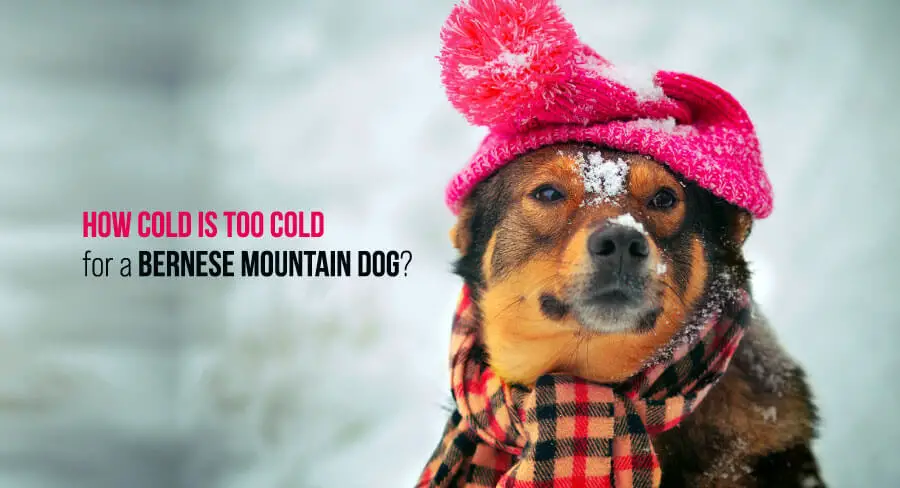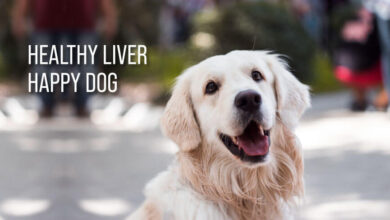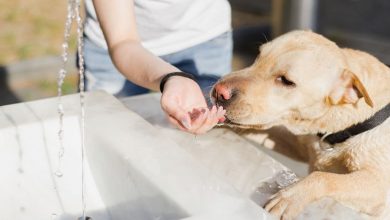How Cold is Too Cold for A Bernese Mountain Dog? Multiple Solution
A majestic and gentle giant, renowned for its striking beauty and warm disposition. With a luxurious double coat perfectly suited for colder climates, this breed thrives in the embrace of winter’s chill. Yet, behind its regal appearance lies a loyal and affectionate companion, eager to share in the joys of every season. Join us as we explore the world of the Bernese Mountain Dog, discovering the art of caring for this magnificent breed in the frosty wonderland they call home. From indoor coziness to outdoor escapades, let’s embark on a heartwarming journey into the captivating world of this extraordinary canine companion. However, today’s discussion is gone on how cold is too cold for a Bernese mountain dog.
Bernese Mountain Dogs are well-suited to colder climates due to their thick double coat, which provides insulation against the cold. However, just like any other dog, they have their limits when it comes to extremely cold temperatures. The exact threshold for “too cold” can vary depending on the individual dog, but there are some general guidelines to consider to understand how cold is too cold for a Bernese mountain dog:
How Cold is Too Cold for A Bernese Mountain Dog?
Whenever the question arises of how cold is too cold for a Bernese Mountain Dog, we get an idea of the ability of this dog breed. They are very cold tolerant animals than other animals. Below is more detail about this in the form of bullet points.
- Temperature: As a general rule, if the temperature drops below freezing (32°F or 0°C), it’s essential to take extra precautions to keep your Bernese Mountain Dog safe and comfortable.
- Wind Chill: Wind chill can significantly affect how cold it feels to a dog. Even if the air temperature is above freezing, strong winds can make it feel much colder. Protect your Bernese Mountain Dog from wind chill by providing shelter or limiting outdoor exposure during windy weather.
- Duration of Exposure: The length of time your dog spends outside in the cold also matters. Short potty breaks and brief outdoor play sessions are usually fine, but prolonged exposure to extreme cold can be dangerous.
- Individual Tolerance: Each dog is unique, and some Bernese Mountain Dogs may be more sensitive to the cold than others. Factors like age, health, coat thickness, and size can influence their ability to handle colder temperatures.
- Physical Activity: If your dog is active and running around during play, it can generate more body heat, making it easier to handle colder conditions. However, during periods of inactivity, they may be more susceptible to the cold.

How to Safe Bernese Mountain Dog?
When braving the cold weather with your cherished Bernese Mountain Dog, it is prudent to ensure their safety and well-being by taking into careful consideration the following tips:
- Provide a warm, insulated shelter for them to retreat to when they are outdoors.
- Dress them in a dog coat or sweater, especially during extremely cold weather or if they have a shorter coat.
- Limit outdoor time during frigid temperatures and take shorter, more frequent walks instead.
- Check their paws regularly for signs of frostbite or ice buildup.
- Ensure they have access to fresh water that isn’t frozen.
- Be attentive to signs of discomfort, shivering, or other indications that they may be too cold.
If you have concerns about your Bernese Mountain Dog’s ability to handle the cold, it’s best to consult with a veterinarian for personalized advice based on your dog’s health and specific needs.
Read More: Difference Between Emotional Support Animals & Psychiatric Service Dog
Additional Considering for Bernese Mountain Dogs
Certainly! Here are some additional points to consider regarding Bernese Mountain Dogs and cold weather:
- Coat Quality: Bernese Mountain Dogs have a thick, double coat consisting of a longer outer coat and a dense undercoat. This coat provides excellent insulation against the cold and helps regulate their body temperature. However, it also means they are more prone to heat exhaustion in hot weather.
- Acclimatization: Bernese Mountain Dogs living in colder climates may naturally acclimate to lower temperatures over time. If they spend most of their time outdoors, their bodies may adapt better to the cold compared to dogs that primarily live indoors.
- Indoor Living: While Bernese Mountain Dogs can handle cold weather, they are not built to live outside in harsh conditions. They are social dogs that thrive on human interaction and are best kept as indoor companions with access to a safe outdoor area for play and exercise.
- Paw Care: During winter, it’s essential to take care of your dog’s paws. Snow, ice, and salt on the roads can be harsh on their paw pads. You can use paw wax or booties to protect their paws during walks, and make sure to rinse their paws after being outside to remove any salt or ice-melting chemicals.
- Senior Dogs and Puppies: Older Bernese Mountain Dogs and puppies are generally more vulnerable to extreme temperatures. They might have a harder time regulating their body heat, so be extra cautious and consider shortening outdoor activities during very cold weather.
- Health Conditions: Some health conditions, such as arthritis, may worsen in cold weather. If your Bernese Mountain Dog has any pre-existing health issues, it’s important to consult with a veterinarian to determine how best to manage their condition during winter.
- Hydration: Even though it’s colder, dogs still need access to fresh water at all times. Ensure their water bowl is not frozen, and consider using a heated water bowl if necessary.
- Signs of Cold Stress: Watch for signs of cold stress in your Bernese Mountain Dog, including shivering, lethargy, reluctance to go outside, or seeking warm places to lie down. If you notice any of these signs, bring them indoors to a warmer environment.
Remember that each dog is unique, and some Bernese Mountain Dogs may be more cold-tolerant than others. Always pay attention to your dog’s behavior and adjust their exposure to the cold accordingly. If you have any concerns about your dog’s well-being in cold weather, consult with a veterinarian for personalized advice.
Read More: How to Wash a Cat without Cat Shampoo?
Suggestions for Bernese Mountain Dog Caring
Besides the above components here are some suggestions for caring for your Bernese Mountain Dog in cold weather:
- Indoor Comfort: Ensure your Bernese Mountain Dog has a warm and comfortable place to rest indoors. Provide a cozy dog bed away from drafts and cold floors.
- Layer Up: If your dog is sensitive to the cold or you live in an area with extremely low temperatures, consider getting a dog coat or sweater to provide extra warmth during outdoor activities.
- Regular Exercise: Even in cold weather, it’s essential to keep your Bernese Mountain Dog physically active. Engage them in indoor play sessions or take shorter, more frequent walks to prevent them from becoming sedentary.
- Limit Outdoor Exposure: On exceptionally cold days, limit the time your dog spends outdoors. Shorten walks and avoid prolonged exposure to freezing temperatures.
- Paw Protection: Use paw wax or booties to protect your dog’s paws from ice, snow, and chemicals on roads and sidewalks. After walks, rinse their paws to remove any salt or ice-melting chemicals.
- Warm Water Bowls: Ensure your Bernese Mountain Dog has access to fresh, unfrozen water. Use a heated water bowl if necessary to prevent water from freezing.
- Health Check: Regularly check your dog for signs of cold stress, such as shivering, lethargy, or seeking warmth. If you notice any concerning symptoms, consult with a veterinarian.
- Grooming: Keep your dog’s coat well-groomed to maintain its insulating properties. Regular brushing helps remove loose fur and keeps their coat in good condition.
- Winter Safety: Be cautious when walking near frozen bodies of water. Thin ice can be dangerous, so avoid letting your dog walk on frozen lakes or ponds.
- Winter Diet: Dogs may burn more calories to stay warm in cold weather, so consider adjusting your diet if needed. Consult with a veterinarian for guidance on feeding during the winter months.
- Heating Precautions: If using space heaters or a fireplace indoors, make sure they are safely positioned and out of your dog’s reach to prevent burns.
- Watch for Frostbite: Pay attention to your dog’s ears, tail, and paws for signs of frostbite. If you suspect frostbite, seek veterinary care immediately.
- Senior and Puppy Care: Take extra precautions with senior dogs and puppies, as they are more vulnerable to extreme temperatures.
- Socialization: While indoor play is essential, continue to socialize your Bernese Mountain Dog during the winter. This can include indoor playdates with other dogs or trips to dog-friendly indoor places.
Remember that every dog is different, and individual needs may vary. Pay attention to your Bernese Mountain Dog’s behavior and comfort level in different weather conditions, and adjust your care accordingly. If you have any concerns or questions, don’t hesitate to seek advice from a veterinarian or a professional dog trainer.
Conclusion
In the embrace of winter’s chill, the Bernese Mountain Dog stands strong with its thick double coat, a guardian against the cold. Though well-adapted to frosty climates, care and consideration are still essential. With warmth and companionship indoors, outdoor adventures adorned with cozy layers, and vigilant paw protection, this majestic breed thrives even amidst icy realms. Embrace the season together, for in mindful guardianship, the Bernese Mountain Dog finds comfort, joy, and love, a heartwarming tale of winter’s bond.




